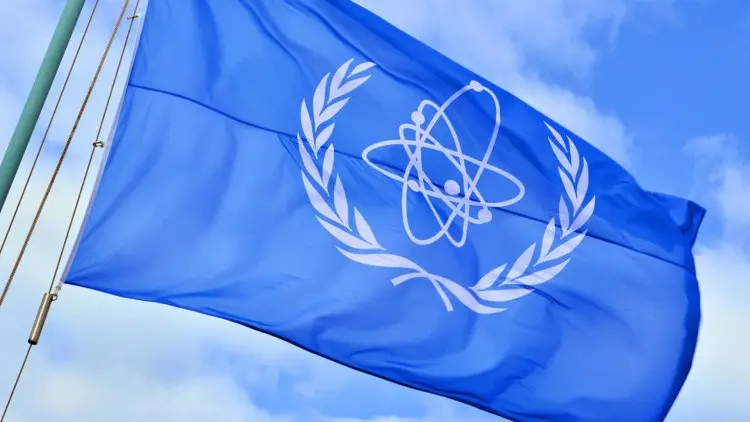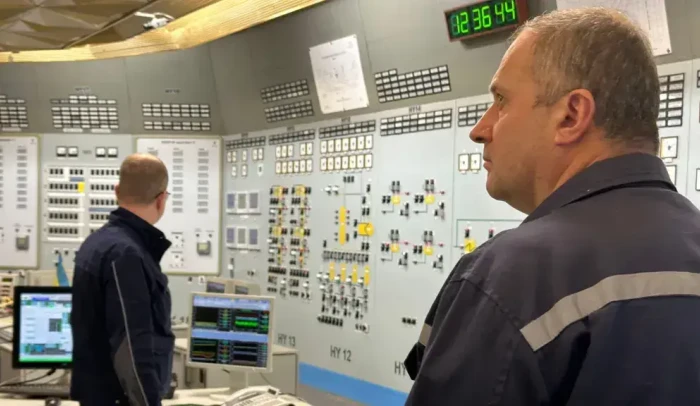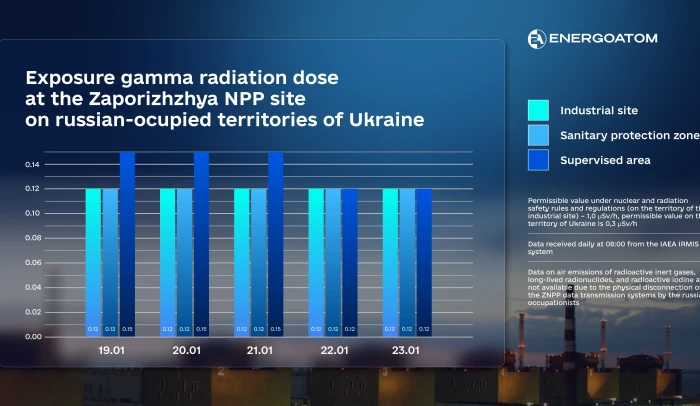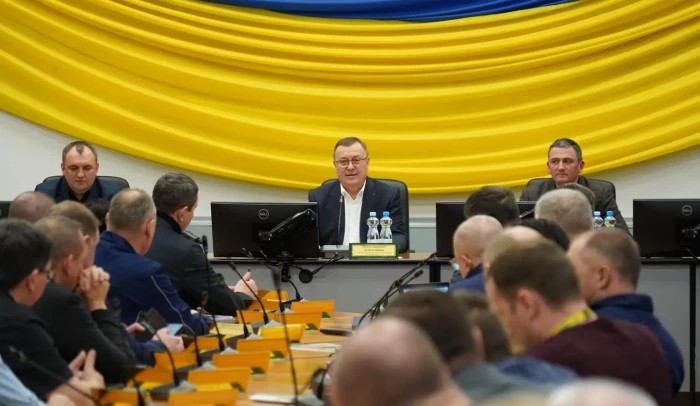Ukraine’s three operating nuclear power plants (NPPs) reduced their electricity generation this morning following renewed attacks on the country’s energy infrastructure that further endangered nuclear safety during the military conflict, Director General Rafael Mariano Grossi of the International Atomic Energy Agency (IAEA) said.
For a second time in less than two weeks, the Khmelnytskyy, Rivne and South Ukraine NPPs lowered their power levels as a precautionary step during widespread military activities in the country, while air raid alarms sounded at the three sites, Director General Grossi said. Two of the IAEA teams deployed in Ukraine were forced to seek shelter.
The operating NPPs have a total of nine reactors, all of which decreased output. One reactor, at the Rivne NPP, was also disconnected from the grid. The NPPs continued to receive external electricity, even though the Khmelnytskyy site lost the connection to two of its power lines.
“Ukraine’s energy infrastructure is extremely fragile and vulnerable, putting nuclear safety at great risk,” Director General Grossi said. “Once again, I call for maximum military restraint in areas with major nuclear energy facilities and other sites on which they depend.”
There were no reports of direct damage to the NPPs, but the IAEA was informed by Ukraine that the strikes once again impacted the electrical substations which the plants use both to transmit and receive off-site power.
These substations, identified by the IAEA as important for nuclear safety and security, have been damaged in previous attacks, including in August.
IAEA teams visited seven substations – located outside the NPPs across Ukraine – in September and October to assess the situation there following the August strikes, finding “extensive damage” and “concluding that the grid’s capability to provide a reliable off-site power supply to Ukrainian NPPs has been significantly reduced,” Director General Grossi told the IAEA Board of Governors last week.
“The IAEA will continue to assess the extent of damage to facilities and power lines that are essential for nuclear safety and security,” he said today. “The IAEA will continue to do everything in its power to reduce the risk of a nuclear incident during this tragic war.”
NPPs need reliable connections to the grid both to distribute the electricity they produce and to obtain off-site power for reactor cooling. The increasing fragility of the grid has been one of the main challenges for nuclear safety and security throughout the armed conflict.
The Director General has repeatedly underlined the importance of adhering to the seven indispensable pillars of nuclear safety and security, one of which states that there must be a secure off-site power supply from the grid for all nuclear sites.





